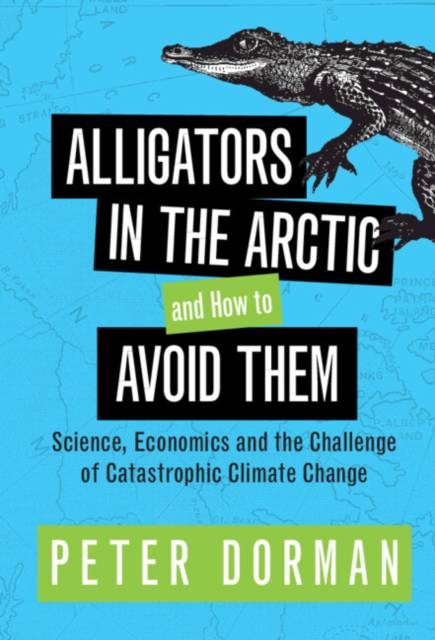
Door een staking bij bpost kan je online bestelling op dit moment iets langer onderweg zijn dan voorzien. Dringend iets nodig? Onze winkels ontvangen jou met open armen!
- Afhalen na 1 uur in een winkel met voorraad
- Gratis thuislevering in België vanaf € 30
- Ruim aanbod met 7 miljoen producten
Door een staking bij bpost kan je online bestelling op dit moment iets langer onderweg zijn dan voorzien. Dringend iets nodig? Onze winkels ontvangen jou met open armen!
- Afhalen na 1 uur in een winkel met voorraad
- Gratis thuislevering in België vanaf € 30
- Ruim aanbod met 7 miljoen producten
Zoeken
Alligators in the Arctic and How to Avoid Them
Science, Economics and the Challenge of Catastrophic Climate Change
Peter Dorman
Hardcover | Engels
€ 57,95
+ 115 punten
Omschrijving
Climate change is a matter of extreme urgency. Integrating science and economics, this book demonstrates the need for measures to put a strict lid on cumulative carbon emissions and shows how to implement them. Using the carbon budget framework, it reveals the shortcomings of current policies and the debates around them, such as the popular enthusiasm for individual solutions and the fruitless search for 'optimal' regulation by economists and other specialists. On the political front, it explains why business opposition to the policies we need goes well beyond the fossil fuel industry, requiring a more radical rebalancing of power. This wide-ranging study goes against the most prevalent approaches in mainstream economics, which argue that we can tackle climate change while causing minimal disruption to the global economy. The author argues that this view is not only impossible, but also dangerously complacent.
Specificaties
Betrokkenen
- Auteur(s):
- Uitgeverij:
Inhoud
- Aantal bladzijden:
- 300
- Taal:
- Engels
Eigenschappen
- Productcode (EAN):
- 9781316516270
- Verschijningsdatum:
- 28/07/2022
- Uitvoering:
- Hardcover
- Formaat:
- Genaaid
- Afmetingen:
- 152 mm x 229 mm
- Gewicht:
- 653 g

Alleen bij Standaard Boekhandel
+ 115 punten op je klantenkaart van Standaard Boekhandel
Beoordelingen
We publiceren alleen reviews die voldoen aan de voorwaarden voor reviews. Bekijk onze voorwaarden voor reviews.











